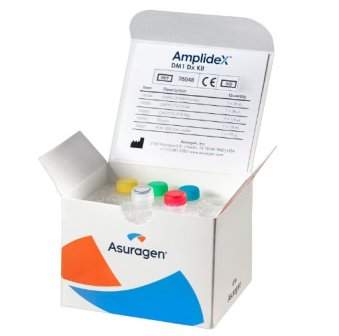
DM1 is an inherited form of muscular dystrophy, which is said to affect around 1 in 8,000 people across the globe.
Glasgow’s Queen Elizabeth University Hospital consultant clinical scientist Nicola Williams said: “We have verified the [AmplideX DM1 Dx Kit] in our diagnostic laboratory and were delighted with the results.
“This assay is easy to use from test setup to analysis and reporting of results. It was able to detect and resolve every expansion we investigated and provided accurate sizing of large pathogenic repeats.”
AmplideX DM1 Dx kit provides a streamlined and PCR-only workflow for the detection and size repeat expansions up to 200 repeats within an eight-hour laboratory shift.
The assay is also provided with an optional agarose gel electrophoresis (AGE) workflow for larger expansions up to 1000 repeats, enabling to further estimate their size without using Southern blot.
The kit also offers all required reagents to accurately size these expansions from less than 20ng DNA.
Based on AmplideX technology, the assay is provided with three-primer design to resolve zygosity and detect low-level mosaicism in patient samples.
The assay can be used on the suite of Applied Biosystems genetic analyzers, including the 3130, 3500, and 3730 platforms.
Asuragen president and CEO Dr Matthew McManus said: “Despite recent technical advances within our industry, the detection and sizing of repeats in DMPK has remained a significant challenge for diagnostic laboratories worldwide.
“With this launch, we continue to demonstrate that AmplideX technology is a powerful clinical tool with benefits not just for laboratorians, but also the clinicians and patients who depend on their results.”
The company also produces QuantideX NGS RNA lung cancer kit, which studies known clinically-relevant gene fusions, 3’/5’ imbalance markers, exon skipping events, and mRNA expression levels in non-small cell lung cancer (NSCLC) samples.
Asuragen produces diagnostic systems, which are composed of proprietary chemistry and software. They provide better results with a wide range of instrument platforms.






